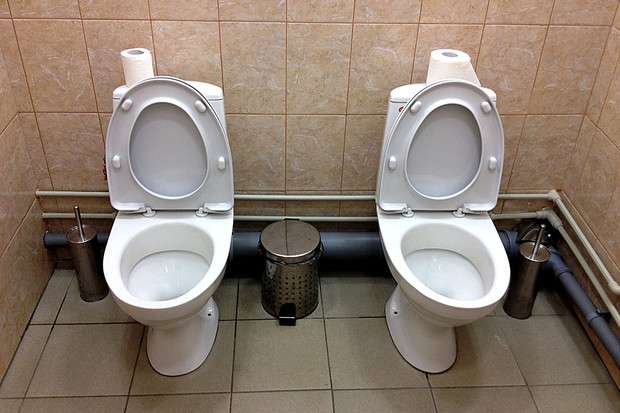Recent images of unfinished hotel rooms, broken plumbing, and other flaws noticed at the Sochi Games have been the source of much online amusement. However, these @Sochiproblems, a Twitter account started by Canadian journalist Alex Broad, might be more than just silly flaws to poke fun at. In mocking these issues, we ignore that they are the result of widespread corruption. The Sochi Games cost over $50 billion, making them the most expensive Olympic games ever held. Yet, organizers can’t even build stalls to separate toilets. And while the pictures on Twitter of skiiers taking side-by-side bathroom breaks are admittedly funny, Russian taxpayers probably aren’t laughing.
The mis-allocation of funds in the construction industry is not a new phenomenon, especially in Russia, which continues to have a reputation of corruption in business dealings. The Sochi Olympics, which required many massive building projects, provided a perfect opportunity for Russian construction tycoons to capitalize off of the government’s need for new infrastructure. When such corruption is present, accountability is eliminated, working conditions deteriorate, and construction work becomes erratic. Thus, the games end up with poorly built ski-jumps, broken sewage pipes, and exorbitantly-priced stadiums.
While such descriptions of construction procedures at Sochi may seem like classic “only in Russia” absurdities, the truth is that corruption in the construction industry is a much broader issue. As New Yorker financial columnist James Surowiecki recently wrote, “Transparency International has long cited the construction industry as the world’s most corrupt, pointing to the prevalence of bribery, bid rigging, and bill padding.” Whenever large-scale infrastructure is built—even in liberal democracies with relatively transparent business practices, such as Canada—the risk for corruption and backdoor dealings is high.
Indeed, residents of Montreal are keenly aware of the crooked nature of the construction industry, which has been implicated in dealings with criminal elements, and is renowned for cronyism and corruption. Delays in construction, inflated prices, bribes, and kickbacks are all commonplace. This city’s own preparations for the 1976 Winter Olympics were riddled with corruption. The Olympic Stadium was unfinished at the time of the Olympics, and its roof subsequently caved in twice over the years. A piece of the tower also fell onto the field during a Montreal Expos game in 1986. To top it all off, the City of Montreal only finished paying off all of the debt from the stadium’s costs in 2006.
So the next time you come across a picture of a Sochi hotel lobby looking like a war zone, remember that the only people you’re sharing a laugh with are the Russian construction magnates who are om their way to the bank. Maybe then we will be able to sympathize with the Russian taxpayers who are the ones shouldering the costs of our amusement.









Your point on putting the host city and nation in debt is well made. This is why the corporate state promotes wasteful spending. The global state we here lauded as the new age is simply corporate control of the planet and debt slavery for the 99.99%